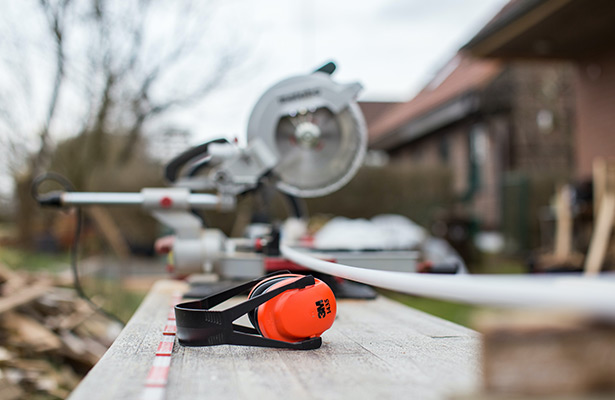
Mobile air compressors are excellent for powering tools, inflating tyres, and helping people in the maintenance service industry complete their jobs, but they aren’t exactly renowned for their noise levels. The motors in mobile air compressors produce noise that can be disruptive in residential areas, affect the working environment, and potentially cause long-term hearing damage to whoever uses them.
However, there are ways to help reduce the sound emitted from these units, and certain models are designed specifically to be more silent than others. Mobile Energy Australia cares about the wellbeing of our customers, so by using these useful tips and tricks, you can look after your hearing while still enjoying all the benefits of a mobile air compressor.
How Loud is Unsafe?
The level of decibels considered unsafe to the human ear varies depending on factors like distance from the source of noise and the amount time spent in the presence of that source. However, it is generally agreed upon that any noise under 70 decibels is safe for humans to be exposed to indefinitely, while any noise over 85 decibels presents the risk of hearing damage.
The mobile air compressors from MEA range in noise level, but most fall in the range of 70-85 decibels. We’ll talk more about specific model types in a bit, but for now, it’s important to understand that long exposure to air compressors can be harmful to your hearing, but there are safety precautions that can be taken to virtually eliminate this risk.
The most obvious example is for workers to wear ear plugs or earmuffs to provide a protective barrier to block out the noise from air compressors. Again, while short exposure to these levels of noise is unlikely to cause harm, long-term exposure will elevate the chance of hearing damage occurring. It’s a risk not worth taking, so always wear the appropriate equipment to ensure your ongoing wellbeing.
How Can I Soundproof My Air Compressor?
Distance is an important factor to consider when working with your mobile air compressor. If you can create a sizeable gap between yourself and the unit by using extension hoses, then the noise level can decrease rather significantly. Even a gap of 10m can cut down noise levels by 25%. Of course, if your air compressor is vehicle mounted, you can always park your vehicle slightly away from your workspace, so you can still access the compressor while allowing for that space to fade down the noise levels.
You can also wrap up your air compressor in a soundproof blanket to help subdue the noise. This may be difficult on a vehicle mounted compressor, particularly those under the bonnet, so make sure you have enough space to make this work.
Another solution is to discuss your specific application and design with the engineering team at MEA. We can utilise various muffler upgrades, higher engine tiers, sound proofing panels or provide placement of component recommendations to reduce the acoustics and create a quiet air compressor. The best solution is to seek advice during the design stage and know your industry DB limits or expectations.
The Quietest Air Compressors from MEA
The most silent mobile air compressors from Mobile Energy Australia are our electrical units: the Battcom and Battcom Frameless. This is due to their motors not requiring fuel to drive the compression pumps and therefore not producing the same loud chugging sound that compressors often make. These units are MEA’s best low noise portable air compressors.
If you’re willing to trade a bit more power for a bit more noise, then our SmartPack petrol-fuelled range comes equipped with self-regulating load/unload control systems that monitors noise levels automatically depending on the level of airflow.
We hope these tips and tricks has informed you on how to make your mobile air compressor more silent, while offering some advice on which units are the most noise-efficient if sound is an important factor for your work environment. Of course, if you have any more questions on mobile air compressors, then contact our friendly team on (07) 3273 6803.
